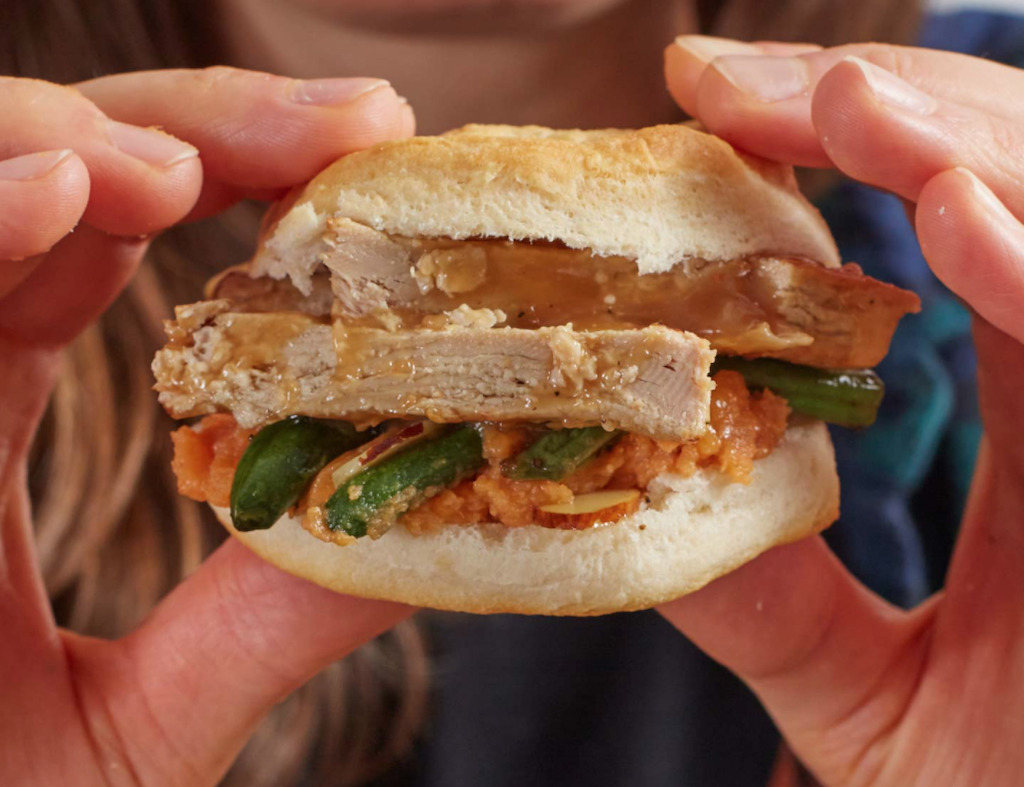4 Mins Read
Boulder startup Meati Foods wants to open an 80,000 square foot factory to churn out tons of its mushroom-based meat. And they have now secured $50 million in funding to do just that. The startup is one of the companies in the growing fermentation space keenly eyed by investors. Unlike plant-based meats on the market, Meati ferments fungi to create their whole cut “steaks”.
Meati Foods has just closed its Series B with an impressive $50 million. Acre Venture Partners and the billion-dollar female-led VC Bond Capital co-led the round. Other investors include Prelude, Congruent and Tao Capital.
Most of the funds will be used to help Meati build an enormous production plant. It’ll be 80,000 square feet, and will be able to make millions of pounds of Meati. Meati is the company’s alternative protein product—and it looks just like a real cut of beef steak or chicken breast.
Fuelled by the extra $50 million, Meati says it’ll be able to go ahead with a full-scale commercial launch by 2022.

Turning fungi into steaks
Their analogues stand out from plant-based proteins on the market, which are often mince, patty or sausage formats. The Colorado startup’s products look, taste and even have the textural qualities of a real slab of meat.
How Meati is able to create its whole cut alternatives is all down to fermentation. The startup uses the tech to extract mycelium out of the roots of mushrooms. Then, they add in natural flavours like chickpea-based miso to create their meats without any soy, peas or wheat protein.
Fermentation has been described as the “third pillar” in the alt-protein industry, next to cell-based and plant-based. And this sector is growing fast.
In 2020, $590 million of the record $3 billion the entire alt-protein industry bagged was raised by fermentation companies like Meati. That’s double from the year before. There’s around 20 players in the U.S., with mycelium bacon maker Atlast being one of the best known.

Investment pouring in
Fermentation protein is being closely watched by investors. That’s because startups like Meati are able to use the tech to create realistic analogues with fewer processed ingredients. This is seen as a double-whammy—consumers are demanding both clean labels and products that can satisfy their cravings.
“Ultimately, we’re introducing a whole new type of food, a whole new type of protein,” shared Meati co-founder and CEO Tyler Huggins, in an interview with Forbes. Huggins founded the startup in 2019 with Justin Whiteley.
Fellow mycelium meat maker Atlast has also attracted major funding lately. Back in April, the company raised $40 million with celebrity backers like Robert Downey Jr.
In an interview with Green Queen Media, Lisa Feria, CEO of Atlast’s investor Stray Dog Capital, says that these “full muscle products” are going to be the next frontier.

“Companies are doing a great job with burgers. But now, we are seeing innovation in terms of providing the textural and structural components of a steak. That’s super interesting to us.”
Meati’s latest round comes on the heels of its $28 million raised in 2020, and $18 million in debt financing in May this year. At the time, the company said it would push ahead with pilot production to begin launching the first samples of its products via foodservice this summer.
Price parity on the horizon
Speaking to Forbes, Huggins says that they’re not far off from being able to compete with meat in terms of price. Reaching price parity is one of the biggest hurdles to overcome for food techs to push out unsustainable livestock farming.
Made from mycelium, which Huggins says as “extremely resource efficient”, their large-scale plant will be able to churn out the equivalent of “4,500 cows every 24 hours”.
All images courtesy of Meati Foods.




